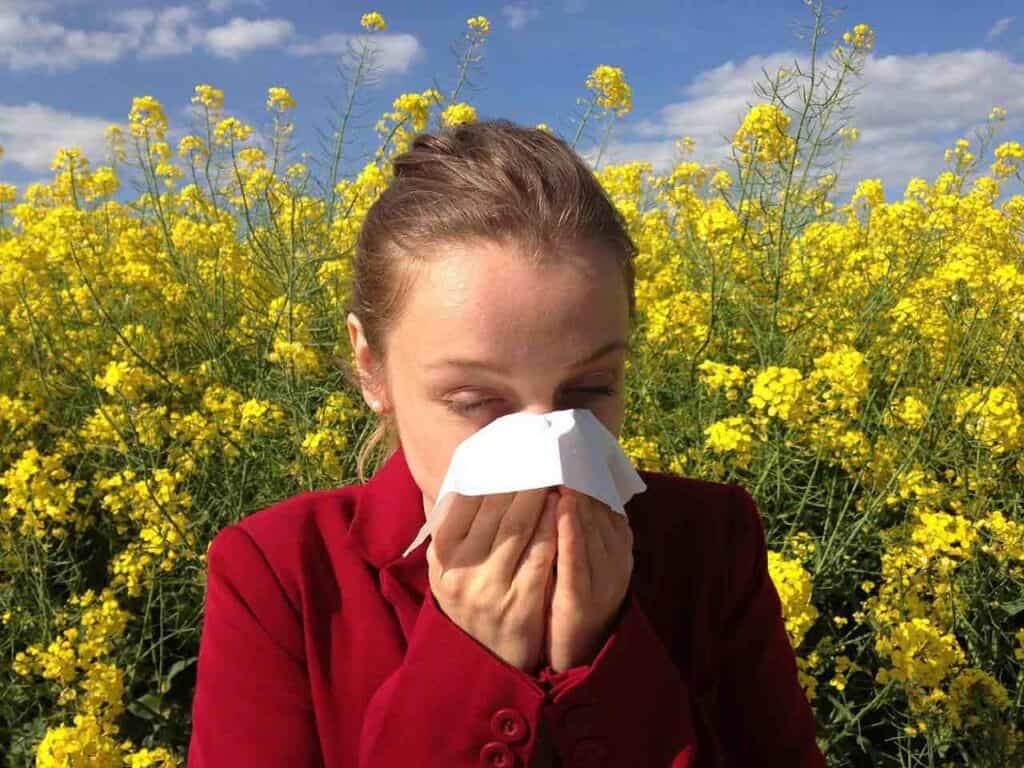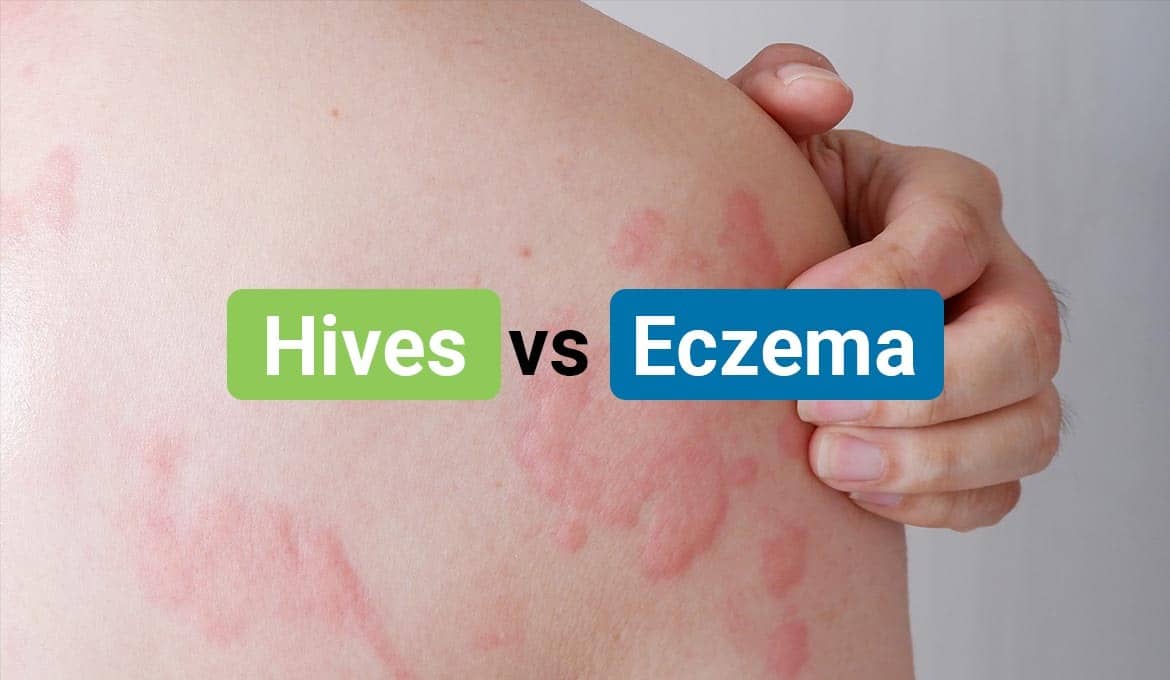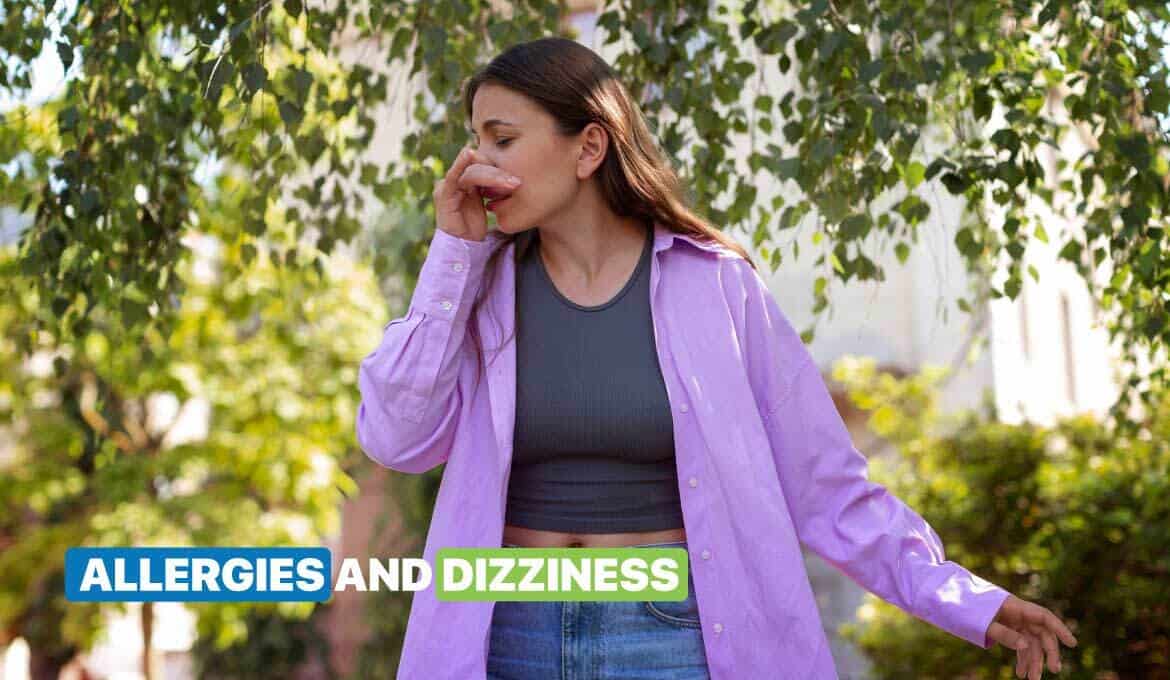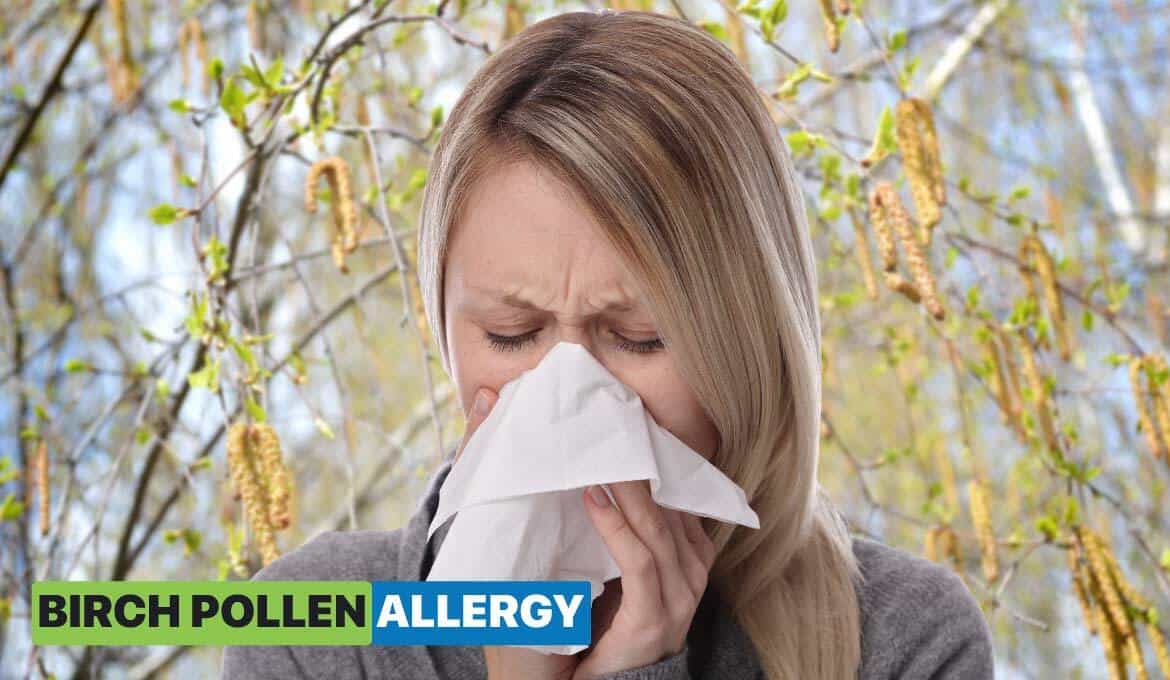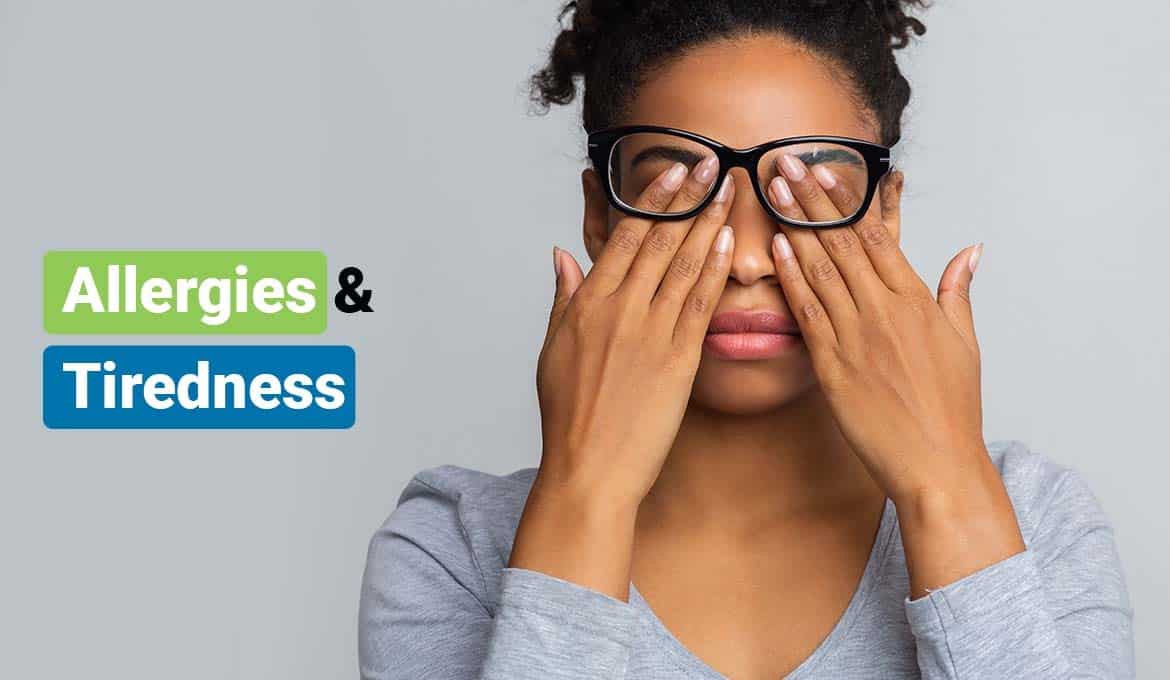
If you are someone who has allergies, you have likely suffered from sneezing, itchy eyes, coughing, nasal congestion, and other annoying complications.
Allergies are a side effect of your immune system reacting strongly to a reaction caused by an internal or external trigger. These substances are known as allergens.
In a study published in “Clinical and Experimental Allergy”, researchers have found that allergies can affect your mental health. At the same time, the link between allergies and mental health is nothing to take lightly.
For instance, people with allergic issues like asthma and hay fever have a higher likelihood of developing depression, anxiety, bipolar disorder, or neuroticism as opposed to their allergy-free counterparts.
While people who suffer from allergies only experience mild discomfort, others suffer more serious complications like tiredness, swelling, shortness of breath, and fatigue. This is because allergies can severely impact your energy levels in many ways and make you feel tired.
Depending on the type and severity of the allergy, the symptoms can vary. However, one common side effect of allergies is exhaustion, as allergic reactions release chemicals that make you feel tired. These chemicals fight your allergies but also lead to the swelling of your nasal tissues, which exacerbates the symptoms.
This leads to sleep deprivation and nasal congestion, which only exhausts you further. This fatigue, caused by allergies, is known as “brain fog,” a consequence of allergies that makes it difficult to concentrate on and carry out everyday tasks.
If you are experiencing brain fog or fatigue because of allergies, you can manage your symptoms and reduce allergy fatigue by following the pointers listed below.
Find Out Your Allergens
To treat your allergies better, the first step is to understand what is causing them and what you are up against. Set up a consultation with a doctor and conduct an allergy test to identify what triggers an allergic reaction in your body.
These triggers can range from something you breathe to something you ingest or come into contact with.
If you’re plagued with allergic reactions that only flare up at certain times of the year or are seasonal, you may have allergic rhinitis (more commonly referred to as ‘hay fever’).
The most common causes of allergic rhinitis include:
i). Pollen
Pollen is a powder substance that comes from trees, grasses, and weeds which travel by the wind. They can enter your eyes, nose, and lungs, causing allergy symptoms.
For people suffering from hay fever, also known as allergic rhinitis, breathing in pollen can cause sneezing, runny nose, and congestion. Pollen exposure also results in allergic conjunctivitis in some people, causing red, weary, or itchy eyes.
ii). Mold or tiny fungi
Mold is a fungal growth that forms and spreads on various kinds of decaying organic matter. They float in the air like pollen causing symptoms in the late summer and early fall. Alternaria and aspergillus fungi are the most common allergens that cause severe allergic rhinitis and asthma.
iii). Animal dander
People who have pet allergies will have symptoms of swollen nasal passages. This includes stuffy and runny nose, sneezing, itchy or watery eyes, and shortness of breath. Physical contact with pet dander will cause contact dermatitis, skin rash, hives, or triggers a person’s asthma.
iv). Dust mites
Dust mite allergy is an allergic reaction to tiny bugs that are present in house dust. People with signs of dust mite allergy are likely to get hay fever, sneezing, and a runny nose. People who have dust mite allergies also experience signs of asthma, such as wheezing and difficulty breathing.
v). Tiny organisms
The gut microbiome plays a role in the course of food allergy. Individuals with food allergies will have different microbiomes compared to healthy controls. An imbalance in the gut microbial ecosystem will result in the development of food allergies.
vi). Insects and insect stings
When some insects sting you, they inject a toxic substance known as venom. Bees, hornets, wasps, fire ants, and yellow jackets are the most common stinging insects that cause an allergic reaction.
vii). Latex
For people who have a latex allergy, the immune system identifies latex as a harmful substance and triggers antibodies to combat it. These antibodies signal your immune system to release histamine and other chemicals into your bloodstream.
viii). Food
Food allergy is caused when your immune system overreacts to certain types of food. When you have a food allergy, your immune system mistakenly identifies some food or substances in food as harmful.
ix). Medications
Some drugs have the potential to cause an allergic reaction. It can cause cough, nausea, vomiting, diarrhea, headache, and skin reaction like rashes and itching. Drug allergies occur when your immune system mistakenly identifies a drug as a harmful substance.
If you experience persistent allergy symptoms and are not sure what you are allergic to, speak with your doctor. An allergist can diagnose exactly what you’re allergic to via allergy testing before they recommend a course of treatment.
Common allergy tests include:
x). Skin tests
A skin test is conducted by exposing your skin to a panel of medically prescribed allergens via a needle to see which allergen your body reacts to.
If you are allergic to a particular allergen, you will develop a raised bump in the corresponding spot.
These tests are done in a single sitting, and you can see the results right away.
xi). Blood tests
Blood tests also help you identify whether you are allergic to something. Your blood will contain cells that show you are sensitive to certain allergens. An allergy blood test checks for increased levels of immunoglobulin E antibodies. The tests detect allergies to foods, pets, pollen, or other allergens.
xii). Physical exams
Physical exams also help doctors diagnose your allergies. This way, you can identify the allergens causing your allergy. During a physical exam for allergies, the physician will examine your eyes, ears, nose, throat, skin, chest, and lungs.
They will also listen to your lungs for wheezing that could indicate inflammation.
There are also many physical signs of allergies, such as skin irritation and nasal and breathing problems. If you’re experiencing any of the above, visit a medical professional immediately to ascertain the seriousness of your allergy.
Reduce your exposure to Allergens
Once you identify the allergens causing your symptoms, try your best to limit your exposure to them. For example, if allergic to pollen, try to stay indoors when there is a lot of pollen in the air.
Keep your windows closed to minimize exposure and if you spend time outside, bathe and change your clothes as soon as you get indoors. If you are sneezing and scratching yourself when you are around animals, avoid contact with them as much as you can.
Certain triggers are not easy to avoid; even if you have seasonal rhinitis, you will still have to go outside in the spring. However, there are several ways you can minimize or avoid your exposure to allergens altogether.
a. Keep your house clean
Allergens like dust, dust mites, mold, and animal dander are common causes of allergies. Regular cleaning of your house will help you stay away from these allergens by vacuuming often.
b. Invest in an air purification system
Air purifiers help the lungs by improving the air quality, which will help you breathe healthier air. These devices reduce exposure to indoor particles, pollutants, and allergens which may positively help your respiratory health.
c. Buy a dryer
Drying clothes outside can also cause allergic reactions. This is because hanging clothes outside attracts airborne pollen and mold. To minimize your chances of reaction, place your wet clothes in a dryer immediately after washing them.
d. Utilize Protective Gear
Use gloves and masks while you perform tasks outside the house. This will help you reduce your exposure to allergens.
e. Avoid Smoking
Smoking, which is a common allergy and asthma trigger, is another major source of allergy. Therefore, quitting smoking and avoiding smoke exposure can help alleviate your symptoms.
Adopting these small changes are highly useful and effective ways to reduce your exposure to allergens.
Medication and Treatment
There are various ways to treat allergies. You need to find an option that caters to your allergy and is suitable for your lifestyle and body. Over-the-counter antihistamines or decongestants are a good option as they reduce swelling and congestion, which helps with fatigue and allows you to sleep better.
There is an extensive range of allergy medications available on the market. Some are targeted to combat particular allergies, whereas others are more generalized and treat many types of allergies.
Antihistamines are perfect examples. This type of medication helps combat allergy fatigue while providing you with short-term relief.
Antihistamines reduce swelling and, thus, alleviate allergy symptoms temporarily. However, it is important to keep in mind some antihistamines also cause fatigue.
Opt for non-drowsy antihistamines like claritin, cetirizine, or desloratadine during the day so you can combat your allergies without compromising on your focus.
On the other hand, an antihistamine that causes drowsiness may be better to take at night because this can help you combat the fatigue that comes with the lack of sleep. These medicines will not only ease your symptoms but help you sleep better.
i). Nasal Sprays
Nasal sprays like Flonase and Nasacort are also good alternatives to treat allergy symptoms. These sprays are available over-the-counter and through prescriptions provided by doctors.
They do not cause drowsiness, but it is important to check the label on your prescription to ensure the product is safe for you to consume.
If your allergies are difficult to manage, consider long-term immunotherapy treatments, like allergy shots and drops, that will help relieve symptoms and even mitigate the need for short-term allergy medication.
Rather than self-diagnosing, we recommend consulting an ENT doctor who will help determine the optimal method for you to treat allergies that often result in fatigue.
ii). Allergy Shots
Allergy shots are the most effective type of treatment for allergy symptoms. The process is simple enough. A small dose of allergens is injected into your bloodstream, which your body will adapt to.
This will help you become less reactive to these allergens. Allergy shots are best for reducing fatigue as they provide fast and non-drowsy allergy relief. Consult a doctor to better understand which allergy shot works best for you.
iii). Neti pots
Using a neti pot will help some people with allergies reduce their symptoms. A saline solution is filled in this device, which is poured through one nostril. The solution can help your nasal passages and mitigate swelling caused by allergies. This will reduce your fatigue.
iv). Immunotherapy allergy drops
Allergy medications only provide short-term relief from allergy symptoms and will become less effective the more you use them. Immunotherapy, on the other hand, is a long-term method of allergy fatigue treatment.
In order to develop tolerance and reduce the intensity of allergic reactions, immunotherapy exposes the body to increasing amounts of allergens. However, it is important to note that this treatment has risks associated with it, which will need frequent visits to the doctor.
That being said, allergy drops are quite effective and do not need the assistance of any kind. All you need to do is put a few drops under the tongue, and you are done. This is one of the easiest approaches to managing and reducing allergies that cause fatigue.
v). Visit an allergy specialist
Various allergens can result in a series of side effects besides feeling fatigued. This makes it challenging to identify specific allergens without medical assistance. Allergists specialize in allergy symptoms and conditions and are trained to find out which triggers are potentially causing adverse reactions.
If you have chronic and/or severe allergies that are negatively affecting your quality of life and you are unable to get to the source, an allergist will be able to precisely diagnose and treat the problem.
Conclusion
Coughing, itching, sneezing, a runny nose, and other unpleasant symptoms are brought on by allergies. Even without fatigue, these symptoms can be annoying.
They make it hard to rest properly at night, leaving you feeling tired all day. Moreover, allergy brain fog can cause discomfort and unpleasantness, which makes it hard to engage in daily activities.
Fortunately, there are several ways you can combat the side effects of allergies and brain fog. The primary step is to get tested for allergies so you can identify the source of your allergic reaction or symptoms.
Then you can work with your doctor to find a treatment that combats your allergy without causing you to feel drowsy or fatigued. Understanding your allergy better will help you identify what triggers the reaction and help you in avoiding them to the best of your ability.
Fatigue caused by allergies can certainly be frustrating. However, there are steps you can take, both in the short and long term, that can aid in relieving your distress.
If you are looking to relieve your symptoms, sleep better, and wake up feeling rested, the first step is to identify and treat your underlying allergens.
Feeling tired will affect your quality of life in many ways. Therefore, it is advised that you get treated as early as possible if you are experiencing allergy symptoms. An ENT expert can guide you and help you get back to a life devoid of fatigue caused by allergies.
FAQs:
Q1: Can allergies cause fatigue?
Ans: Yes, allergies can cause fatigue. This is because when you are exposed to allergens, the immune system is constantly working to release chemicals which, in turn, causes your system to feel overworked and weakened. This leaves your body feeling exhausted.
Q2: How to get rid of allergy fatigue?
Ans: The first step is to find out what you are allergic to and then avoid those triggers. You can also consult a specialist and take their suggestions on ways to combat it, which include getting allergy shots and taking allergy medication (depending on their prescription).
Q3: What does allergy-related fatigue feel like?
Ans: Lack of sleep and constant congestion will make you feel tired and fatigued. This feeling is commonly referred to as “brain fog” because you have a harder time focusing and carrying out daily activities. It can make it difficult to focus and carry out daily activities.
Q4: How to speed up allergy recovery?
Ans: An over-the-counter remedy will help you recover quickly. This includes oral antihistamines, corticosteroid nasal sprays, cromolyn sodium nasal sprays, and oral decongestants.
Q5: Why do allergies cause brain fog?
Ans: This response is caused by the release of histamine, a natural chemical that leads to inflammation. Histamines are also responsible for allergy symptoms and can make you feel foggy or tired as your body fights against allergens.
Read Also:

